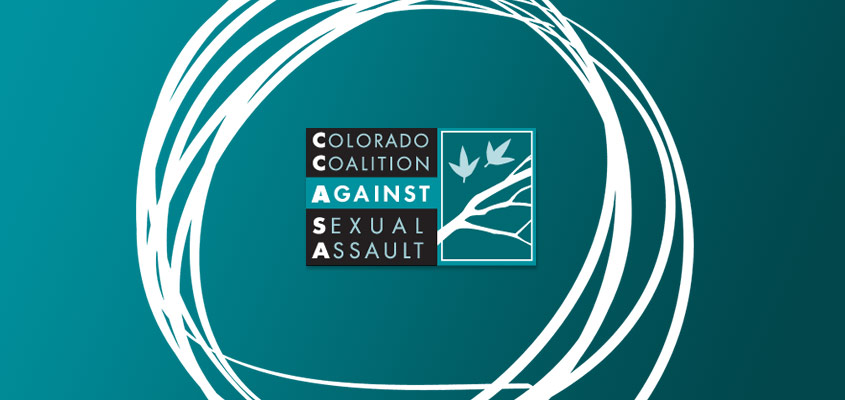Stakeholders continue to stand together to support survivors
DENVER- Yesterday the Colorado Senate heard moving testimony on House Bill 18-1391, a bill which has gained bipartisan support and has offered hope to survivors of campus sexual assault. With limited time remaining in the 2018 legislative session, it is expected the bill will be debated upon Second Reading within the next week where Legislators will consider a slate of amendments added from the Senate Committee of Reference.
“I want to thank CCASA for involving me and the other students with supporting House Bill 18-1391 Sexual Misconduct in Higher Education,” said Grace Glaser, a current student and survivor who attended the bill hearing. “You have opened my eyes to where safety on campuses can be improved, and provided me with a platform to share my story to make a change. I can’t thank you enough.”
The bill passed out of committee late yesterday afternoon with unfavorable amendments added, potentially risking its passage. Both the Colorado Coalition Against Sexual Assault and Colorado Institutions of Higher Education are working in lockstep with bill sponsors to restore the bill to the House version.
“House Bill 18-1391 Sexual Misconduct in Higher Education sends a clear message that Colorado supports survivors, values fair and equitable procedures, and protects all students’ rights to a safe and meaningful education,” said Raana Simmons of CCASA. “We remain hopeful that the strength of our message will inspire Legislators to restore the bill to its House version, effectively addressing sexual misconduct on campuses throughout our state.”
Sexual misconduct poses a serious threat to the safety of students and interferes with their ability to learn. Study after study has confirmed that one in five women and one in sixteen men are sexually assaulted during their time in college. This is an unacceptable reality for students, their families, and is exactly the problem House Bill 18-1391 aims to resolve. We look forward to the outcome of the Senate debate on the floor.
BACKGROUND:
Continuous changes to interpretations of Title IX guidance have created a lack of consistent federal direction for how Institutions of Higher Education must respond to and address sexual misconduct on their campuses. CCASA, Colorado Institutions of Higher Education, survivors, and other campus-based professionals and experts have spent months, nearly a year, carefully crafting a policy solution that guarantees uniformity in process, and allows flexibility for institutions to meet the unique needs of their individual campus communities through an extensive and engaged stakeholder process. While many states are working to develop policies that would establish similar uniformity in campus sexual misconduct investigations, National advocacy groups agree no other state comes close to matching the strength of the collaboration that we have achieved here in Colorado in crafting House Bill 18-1391 “Sexual Misconduct in Higher Education.”
HB 1391 requires institutions of higher education to:
- Publish their campus policies related to sexual misconduct so that all prospective and enrolled students, and their families can easily access the information.
- Utilize the preponderance of the evidence as the equitable standard of proof.
- Prohibit the use of unrelated sexual history from being included as facts of the case.
- Prohibit cross-examination of either party in an administrative proceeding.
- Provide timely updates for both the reporting and responding party on the status of an investigation.
- Train all incoming students and new faculty on sexual misconduct and the policies for reporting and investigation misconduct.
- Provide a copy of the policy and information regarding the training to the Colorado Department of Higher Education (CDHE).
- Attend biannual summits that bring stakeholders together to share best practices information related to preventing and effectively addressing campus misconduct.
###

